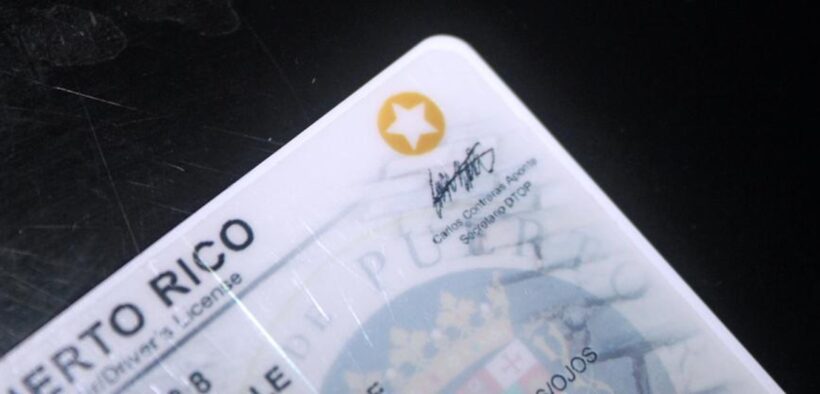Bill seeks English-language Real ID licenses in Puerto Rico

Rep. Ángel Morey has introduced House Bill 0983, a measure seeking to amend Article 3.24 of Act 22-2000, the Puerto Rico Vehicle and Transit Act, to mandate that all Real ID-compliant identification cards issued by the Department of Transportation and Public Works (DTOP, in Spanish) be produced in English.
According to the bill’s explanatory statement, Act 22-2000 establishes the legal framework governing vehicular traffic, the issuance of driver’s licenses and official identification cards in Puerto Rico. DTOP is responsible for issuing licenses and IDs that meet both local and federal security requirements.
“The federal Real ID Act of 2005 set uniform national requirements for driver’s licenses and identification cards issued by states and U.S. territories,” the statement reads. “These standards ensure that the documents are accepted for access to federal facilities, nuclear plants and commercial flights within U.S. jurisdictions.”
The Real ID law requires verification of personal information, security features and electronic data exchanges between states. It was enacted after the Sept. 11, 2001 attacks as part of broader national security efforts, though implementation was delayed for years due to resistance from state and territorial governments.
Puerto Rico issues IDs that comply with Real ID security standards, but the content on the documents appears in Spanish. This, the bill argues, “has led to confusion when Puerto Ricans use their IDs in U.S. states or before federal authorities.”
A 2001 regulation technically allows English-language IDs on request, but the current application form offers no option to select English for Real ID content.
House Bill 0983 seeks to ensure that all Real ID driver’s licenses and identification cards are issued in English to promote uniformity across U.S. jurisdictions. The measure states that the change would not affect access to services in Spanish or the availability of Spanish forms or exams.
Supporters describe it as an administrative change aimed at eliminating language-related obstacles when traveling or conducting official business.
The bill also would amend Article 3.14 of Act 22-2000, “reaffirming that driver’s licenses are valid for eight years and may be renewed” for the same term. Applicants could choose between a Real ID-compliant license, which would be issued in English, or a regular license.
Applicants who decline a Real ID must be informed in writing of the limitations of a noncompliant license, including that it will display the notice “NOT FOR REAL ID PURPOSES” in red capital letters and cannot be used for domestic air travel, entry to federal buildings or military bases, nor will it be included in the national interconnected identification database.
Drivers with valid licenses may request a Real ID replacement at any time if they meet the requirements.
Article 3.24 related to identification cards would be amended in parallel. Individuals 16 years or older, or retired government employees without a driver’s license, may request an ID valid for eight years.
Applicants would have the option of a Real ID-compliant identification card in English or a non-Real ID card with the same limitations associated with non–Real ID documents.
DTOP would have 180 days from enactment to amend regulations to comply, including formatting and translation standards. A separability clause is included to preserve the remainder of the law if any provision is ruled unconstitutional.
The bill was referred to the House Transportation and Infrastructure Committee and would take effect immediately upon approval.




